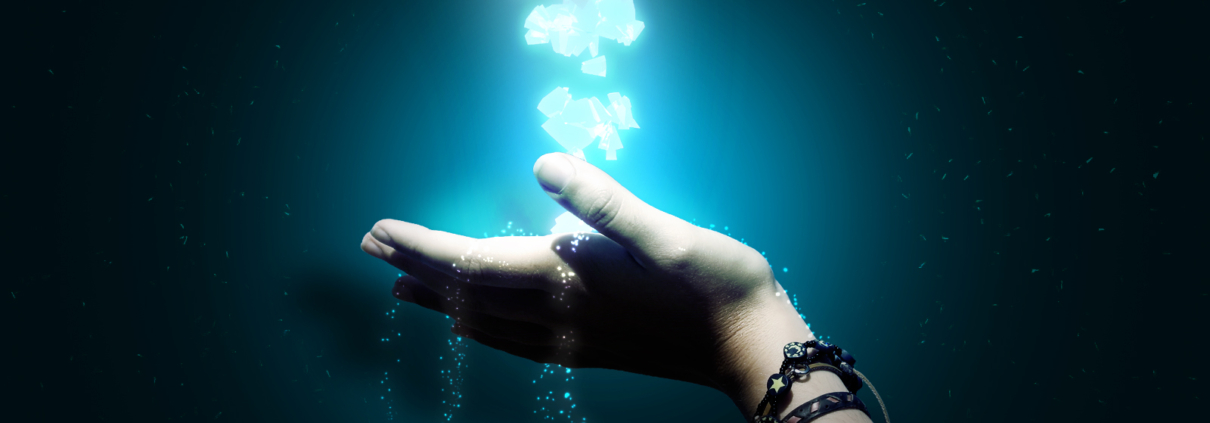The Power of Hope
This Too is For Good: The Power of Hope
Perhaps nothing seems more obvious than what’s “good” or “bad” – or, as this week’s Torah portion (Re’eh) puts it, what’s a “blessing” or “curse.” At this time in the Jewish calendar, when the approaching High Holy Days prod us to examine “good” and “bad” in our lives, a famous story challenges our sense of what “good” and “bad” are.
The great Akiva once traveled to a certain city. Finding nowhere to pass the night, Akiva slept alone in the woods. A lion devoured his donkey, a cat killed his rooster and the wind extinguished his candle – leaving him alone, in the dark without food or transportation. All throughout, Akiva insisted that all of this “bad” somehow was for “good.” The next day, Akiva found that robbers attacked the city and carried its inhabitants into captivity. Only Akiva escaped because his donkey and rooster weren’t around to make noise and his extinguished candle didn’t give away his location (Talmud, Berakhot 60b).
Akiva’s story reminds that everything can be more than it seems: even the most “bad” somehow can be for “good” – and we all can try living that way.
Naturally the mind conjures counter-examples. What’s the “good” of cancer? school shootings? refugees? genocide? It’d be cruel or dumb to blithely call disease and death “good”: suffering must galvanize us to seek healing and wholeness however we can. For that reason, we might read Akiva’s story as a call to action: “this too is for good” if we make “bad” into “good.”
Yes, we must act – but Akiva’s point goes deeper. The “bad” Akiva faced was beyond his control: he could only hope, in the words of his teacher Nachum Ish Gam Zu, that “this too is for good” (in Hebrew,gam zu l’tovah).
Before we can act, first we must hope. And if we can’t act, then we must hope. Either way, first we hope.
Hope powers possibility. Often we think we know every impact and meaning of events. But if we’re deeply honest, we must confess that we know far less about the world (and ourselves) than we may comfortably think. Hope asks humility of mind, to not assume we know more than we do. When we let go of over-sure knowing, naturally hope arises. Hope is our natural state – and when we hope, anything can happen.
Hope powers experience. When we think we know the future, patterns of mind shift into autopilot. Psychologists call them cognitive heuristics, mental shortcuts of assumption and habit that conserve brain power. Cognitive heuristics are why we can drive a car without thinking about every movement of eye, hand and foot (otherwise we’d be frenetic or paralyzed) – but cognitive heuristics also can lead us astray. Every phobia, every fixed judgment of another’s character, and every prejudice based on race, gender, sexual orientation, religion or nationality, is a cognitive heuristic gone bad. When we let go of over-sure knowing, we see our mental shortcuts for what they are. Hope that’s truly open to the future helps us experience life full and fresh, without a dulled mind or straitjacketed heart coasting on autopilot.
Hope fuels resilience. Hope inspires audacity to defy darkness and courage to face fear. With hope, illness can bring healing (but not always cure). Injustice can prompt action (but not always justice). Destruction can lay new foundations. Hopes for healing, action and renewal are wellsprings of resilience.
Hope isn’t blind anti-intellectual comfort: it’s spiritual power. Hope doesn’t deconstruct “good” and “bad,” or relieve us of moral agency, but rather lifts our vision toward a view more expansive than mere eyes can see.
So what of life’s “blessings” and “curses”? What of accountability for our actions? Hope isn’t nihilism: we can’t behave however we want and pretend it “good.” This time of year especially calls us to examine choices, take responsibility for consequences, and renew our commitment to be as “good” as we can.
But when we’ve done our best, or our best seems not “good” enough, or there seems no way out, Akiva reminds us that everything can be more than it seems. We need the hope that we can’t see the whole picture. So even before we do all we can to make “good” from “bad,” first we summon hope – a hope that can remake the world.
R’ David Evan Markus






 Evan J. Krame was ordained as a rabbi by the
Evan J. Krame was ordained as a rabbi by the